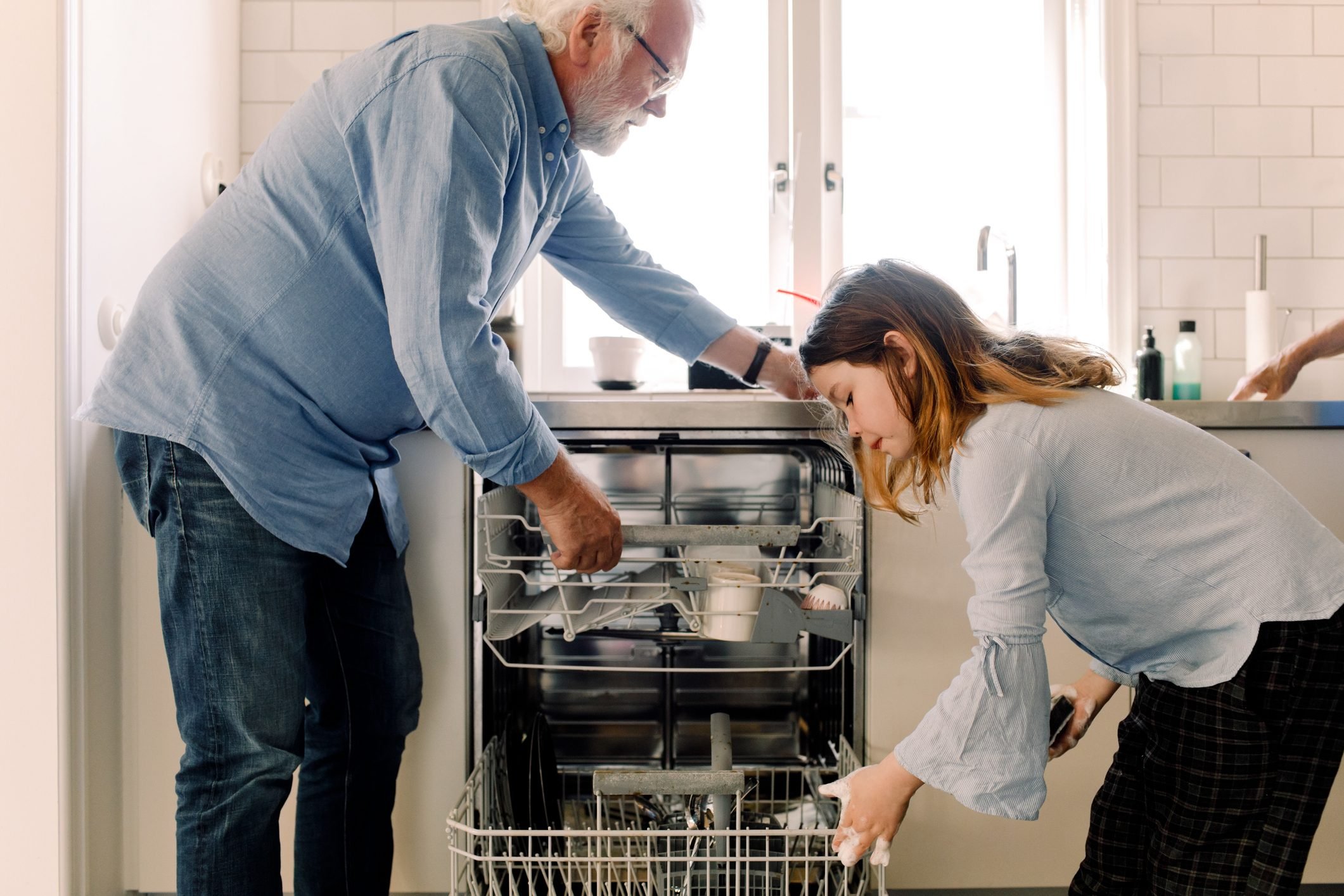
We’ve got some bad news for you
As far as kitchen appliances go, few are as underappreciated as the dishwasher. In fact, it ranks as the least-used device in American homes, according to the U.S. Energy Information Administration. That’s odd because:
- Hand-washing dishes is such a loathsome task that most people would prefer scrubbing a toilet, according to a 2017 survey.
- Doing your dishes by hand has been scientifically proven to be less effective than using a dishwasher.
- Using a dishwasher can save you nearly 10 days’ worth of hand-scrubbing over the course of a year.
- An energy-efficient dishwasher can cut your utility bills by $111 per year, as compared to washing and drying by hand.
- In the age of COVID-19, do you really want to take your chances that you’re not getting your dishes completely clean?
So, what gives? After talking to appliance experts, it has become apparent that a great many dishwashers out there—maybe even the one in your kitchen—are actually in desperate need of replacement. Here are the signs your dishwasher is dying (or is basically already dead).
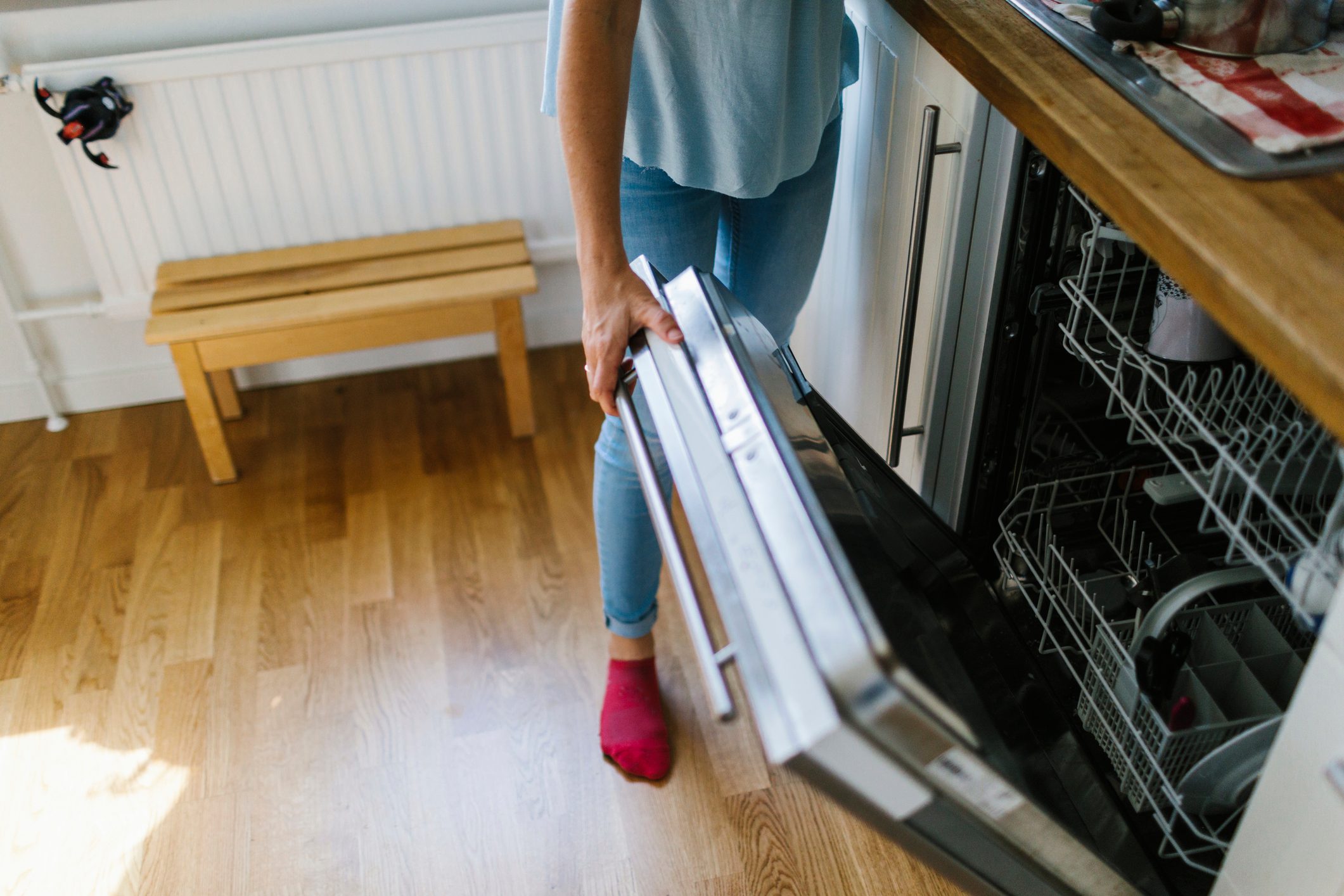
The door won’t latch
If the door to your dishwasher won’t latch, then it would be surprising if your dishwasher could even start, according to home repair expert Nick Ornitz, the CEO and founder of Dwelling, a “telemedicine” site for homeowners. If that’s the case, mystery solved: We know why you’re not using your dishwasher. The good news is that it may be possible to replace the latch. If not, however, your dishwasher probably needs to be replaced.
“If it’s not a simple latch replacement,” says Ornitz, it’s likely “the door has been warped over time.” Usually that’s the result of ongoing water damage. To avoid the situation of loading up your dishwasher only to find it won’t start because it won’t close properly, you’ll want to pay attention to some of the earlier warning signs of leaks, clogs, and the like, as discussed below.
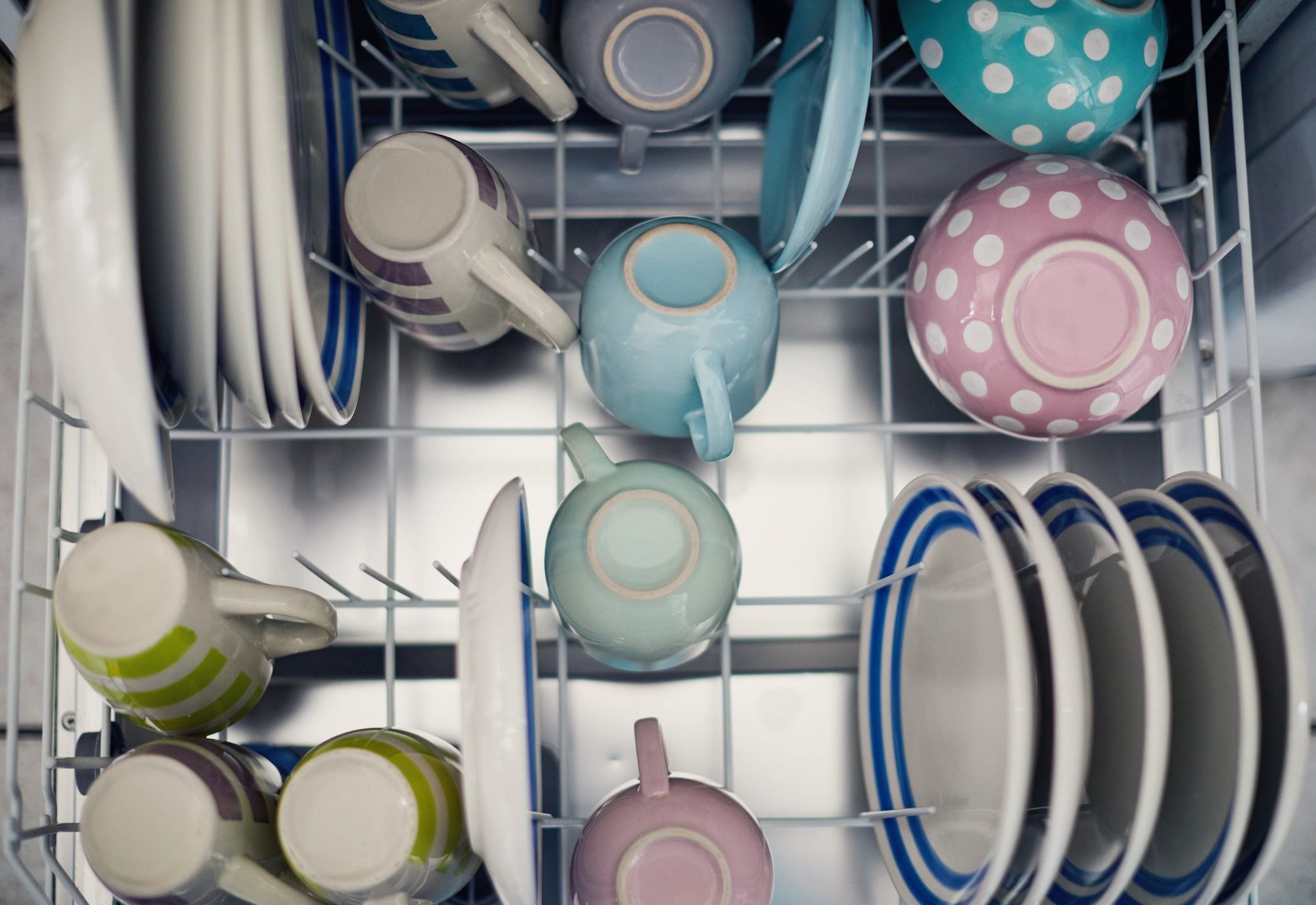
The dishes are cold
Whereas hand-washing requires you to scrub your dishes clean, dishwashers rely on the spray of very hot water to do the job. It’s therefore highly unlikely your hands would be able to tolerate the water temperature required to properly sanitize your dishes, as per FDA guidelines, which is just one of the reasons you shouldn’t be washing your dishes by hand. Immediately after your dishwasher is done with its cycle, your dishes should still be uncomfortably hot to the touch. If that is not the case, then the heating element inside the dishwasher may be malfunctioning, according to Rob Shaw, resident appliance expert at ProTip, an app that offers on-demand access to verified home-repair experts via one-to-one video calls. “The heating element can be an expensive part to replace or fix,” he notes, “so if your dishes aren’t hot to the touch at the end of a cleaning cycle, you may need to consider replacing your dishwasher.”
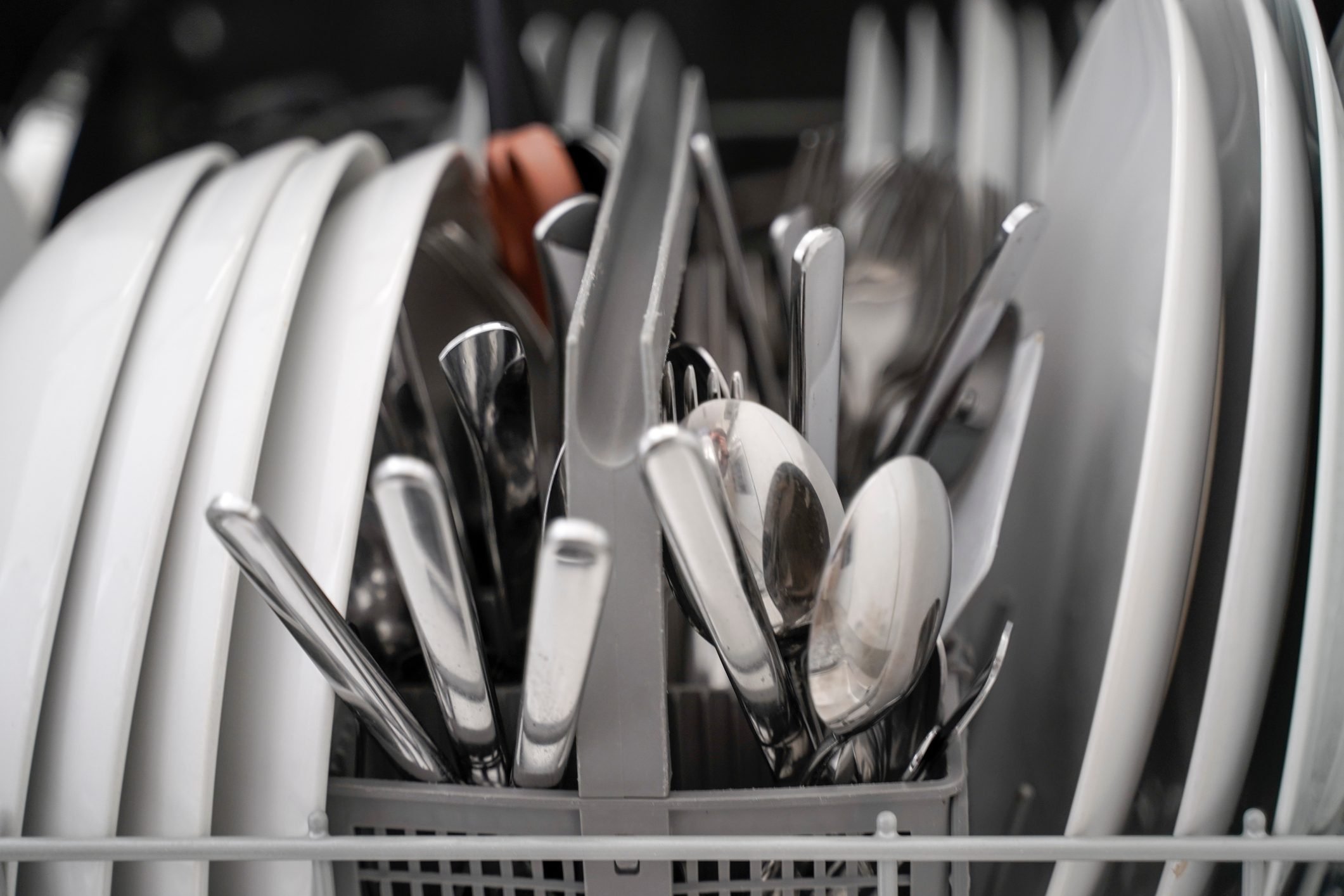
The dishes aren’t clean
You might think that if your dishes are coming out of the dishwasher with food residue, your dishwasher is done for. That’s not always the case, though. “If your dishwasher isn’t cleaning well, the first thing you should do is check to see if there are any food particles in the filter, which is located in a cylinder at the bottom of the machine,” advises Albert Lee, founder of Home Living Lab. If you don’t see any, then your next step is to give your dishwasher a thorough cleaning, says Audrey Monell, president of Forrest Anderson Plumbing and Air Conditioning in Glendale, Arizona. That includes pulling out the filter and rinsing it in hot, soapy water and cleaning the spray-arm, which can get clogged as well.
If you’re still not getting clean dishes, it still it doesn’t necessarily mean your dishwasher is dying. Hard water or caked-on food could be the culprit. Of course, if nothing you do is helping, then that may be a sign your dishwasher is dying and it’s time to seriously consider shopping for a replacement unit. Whether you keep your old model or get a new one, make sure to avoid these 21 mistakes that shorten the life of your dishwasher.
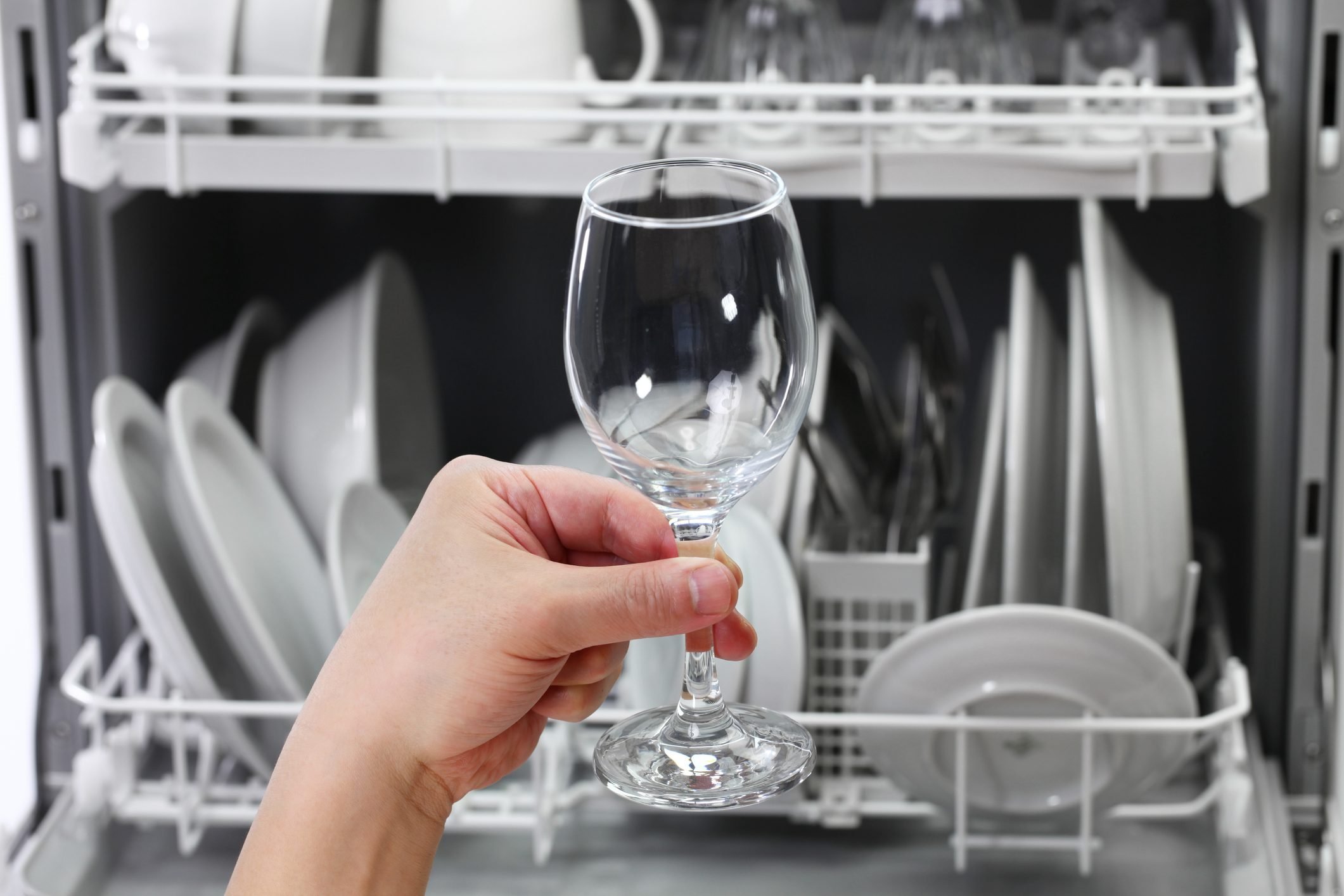
The glasses are coming out spotty
Spots on your glasses can also be a sign your dishwasher is dying, but if you know you have hard water, then that could very well be the reason. It could also be a sign you need to add this ingredient to your dishwasher. If that doesn’t help, our experts suggest you follow the same procedure recommended for when your dishes aren’t coming out clean.
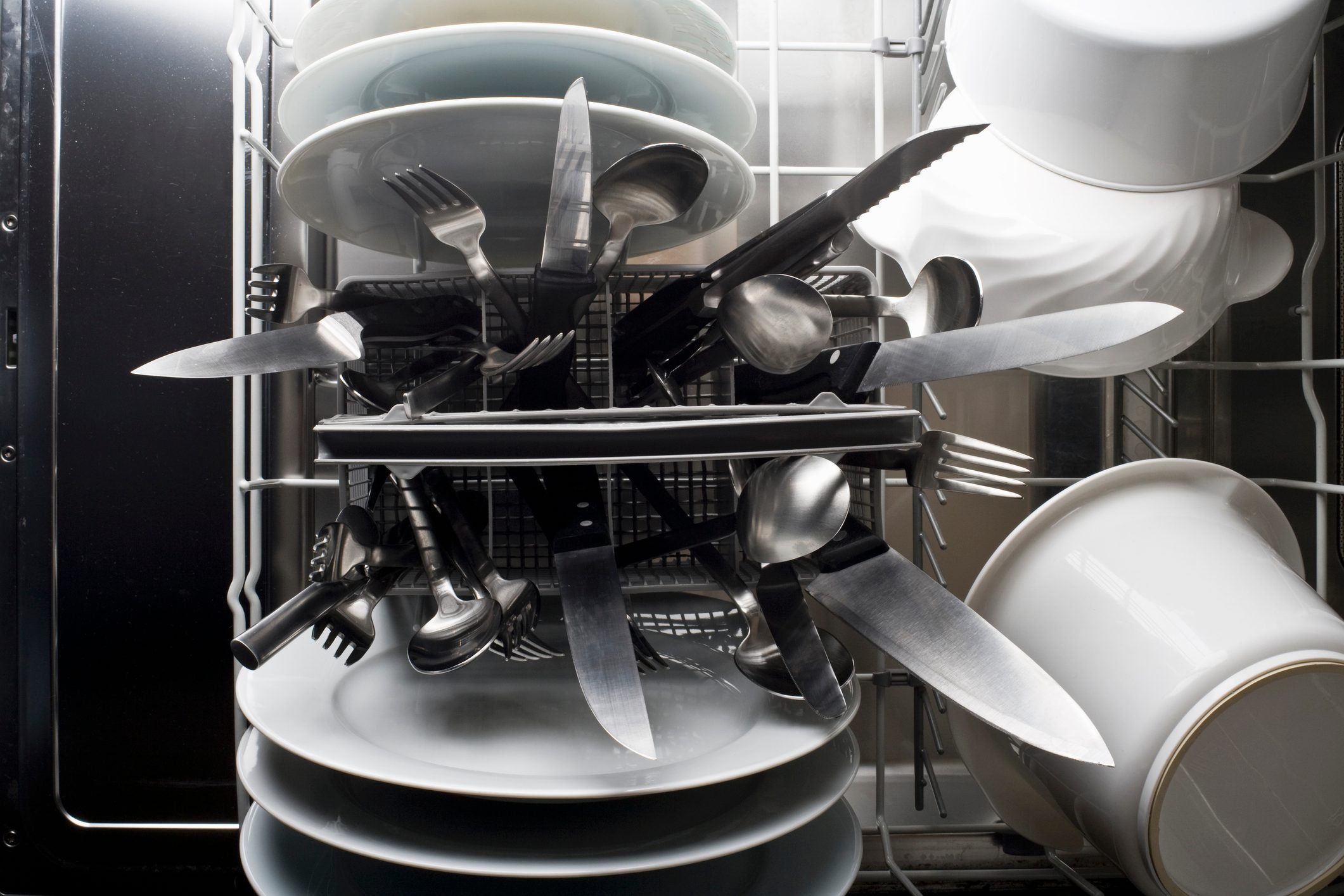
There’s a puddle of water on the floor of the machine
Opening the door to your dishwasher after a cycle and seeing water pooled at the bottom is a major sign your dishwasher is dying and in need of replacement, according to Monell. What it signifies specifically is that your dishwasher isn’t draining properly. However, before you go shopping for a new machine, you’ll want to check to make sure the drain isn’t clogged; if you see a clog, she suggests trying to eliminate it yourself with a wire coat hanger bent into a u-shape. In addition, if you have a garbage disposal, you should check the disposal drain line to make sure it’s not the cause of the problem.
If there’s no physical blockage that you can identify, then it’s quite possible the drain, itself, has malfunctioned, says Ornitz. If that’s the case, it may be time to replace your dishwasher. FYI, these are the 11 brands that make the most reliable appliances, according to Consumer Reports.
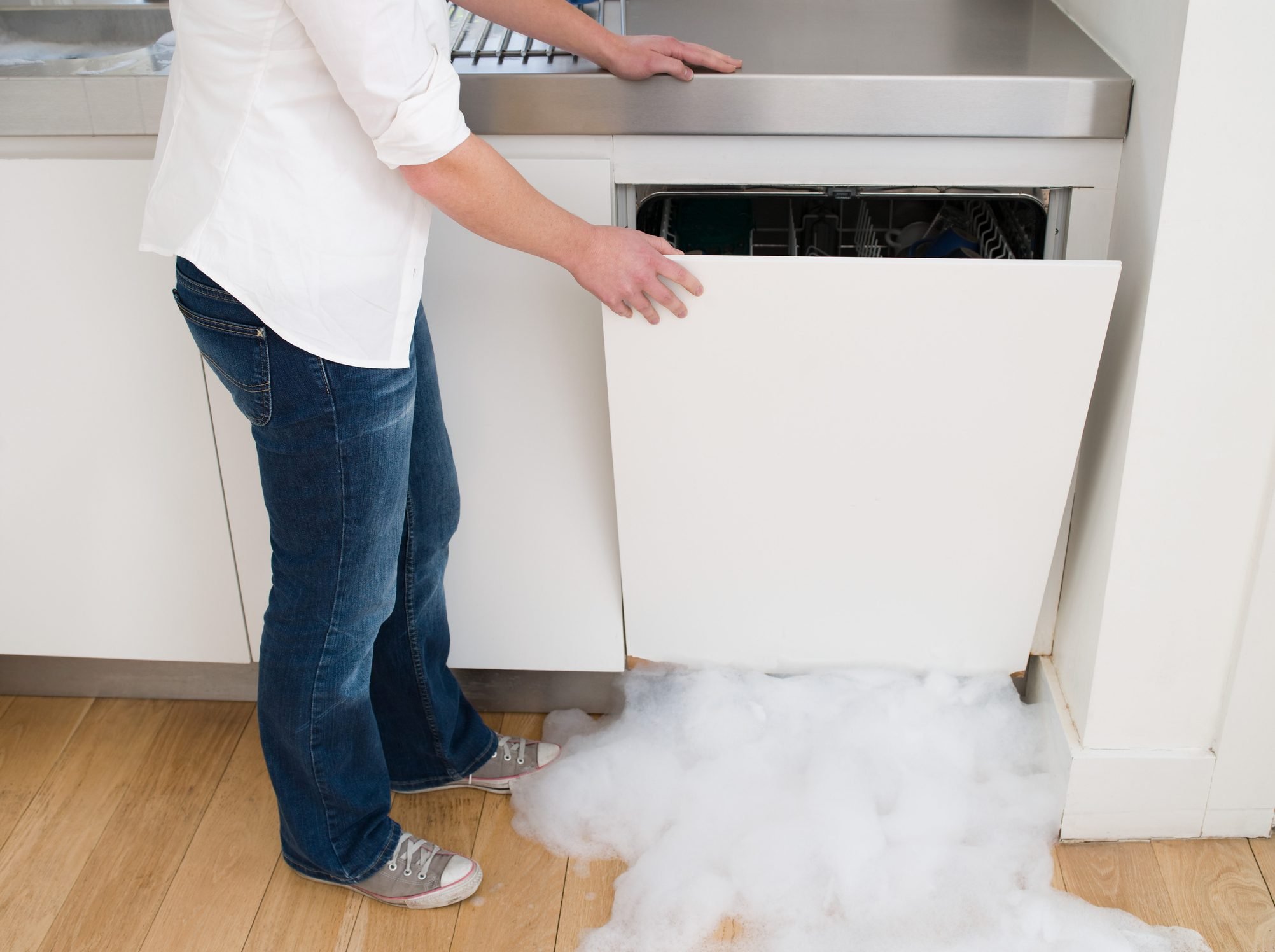
There’s a puddle of water on the kitchen floor
By the time you see a puddle of water on the floor in front of your dishwasher, Monell notes, you’ve probably already seen a puddle on the bottom of the machine. That means water on the floor is even more of a telltale sign that it’s time to replace your dishwasher. In that case, turn off the water supply, dry all surfaces, and consider using a dehumidifier to extract lingering moisture while you wait for the plumber. Here are 15 crazy things you never knew your dishwasher could do.
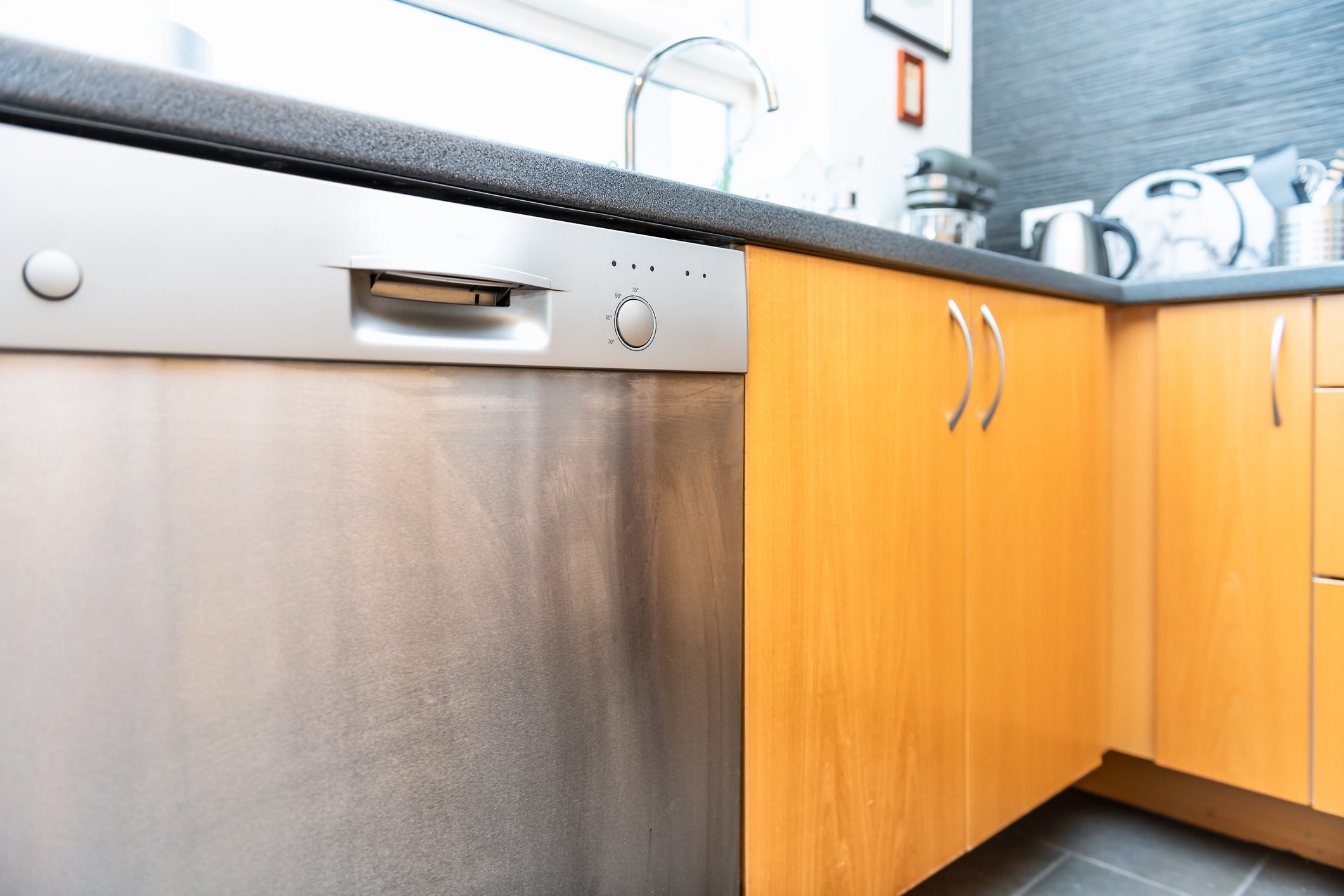
You see rust on the outside of the machine
Rust is never a good sign, whether inside or outside your dishwasher, according to Shaw. “Anytime you see rust in or on the surface of a dishwasher, it could be a sign of a water leak,” he explains. And that could require either an expensive plumbing repair or a replacement of the machine. Here’s how to clean your dishwasher so it looks like new.

You see rust on the inside of the machine
While rust on the outside of the machine may be worrisome, it’s something you should never ignore on the inside. First, it means that rust is on the dishes you think are clean. Second, it’s a sign that the interior of your dishwasher has worn away or broken apart such that the underlying metal is starting to rust. One way to quickly diagnose the problem is to run the dishwasher on empty with a spoonful of citric acid in the soap container. If that doesn’t clear the rust, then you’ll want to consult a plumber. And be prepared—it may mean the end for your dishwasher. FYI, you might be loading your dishwasher wrong.
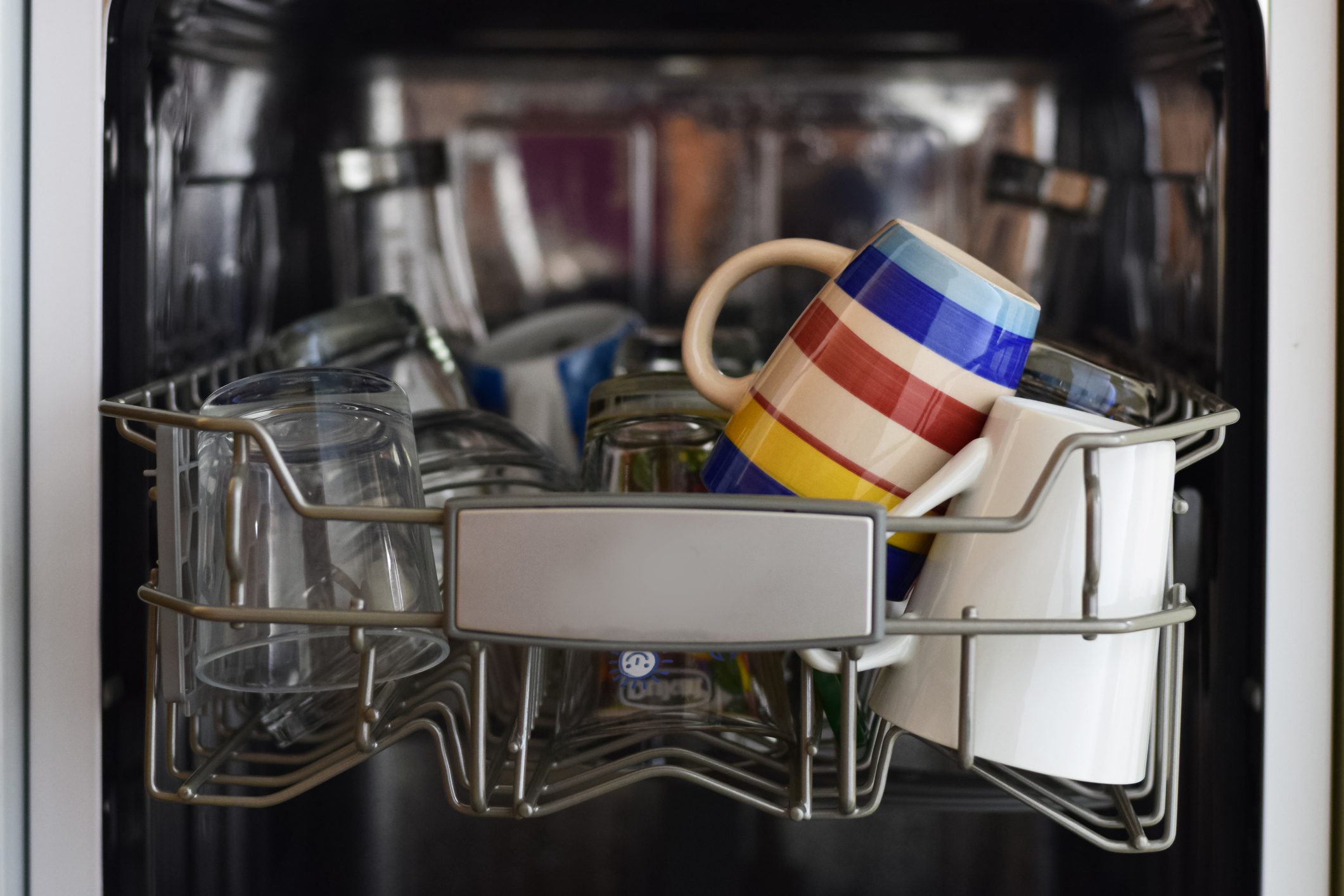
You see cracks
Of course, if you see a visible crack in the interior of your dishwasher, rusting and leakage are likely just around the corner, if they haven’t presented themselves already. Scratches and cracks can happen as a result of normal wear and tear or because you put something in the dishwasher that wasn’t meant to be cleaned in a dishwasher. If you see a visible crack, you should disconnect the water supply and call a plumber right away to avoid potential water damage to your home. Find out the best time to buy a dishwasher and other household appliances.
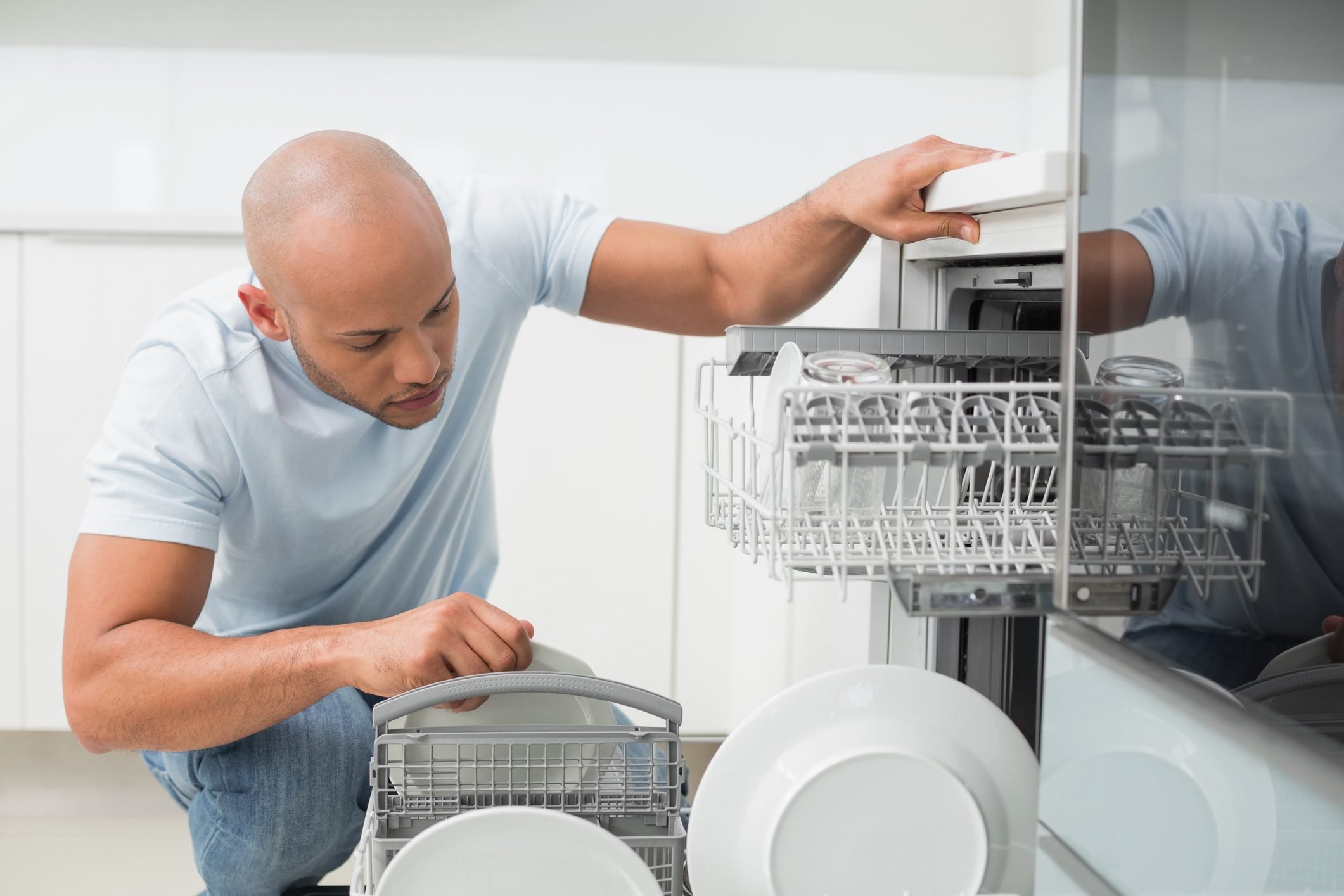
Your dishwasher is making weird noises
Even quiet dishwashers can make noise while they’re in rinse mode, but if you start to hear unusual noises coming from your dishwasher, it’s time to turn it off and check to see if perhaps the noise is coming from dishes hitting one another or some part of the interior of the machine. If you can see no reason why your dishwasher would be making weird noises, then you should assume the issue is the motor. If it’s the motor, repairing it or replacing it may be more expensive than simply purchasing a new machine, and for reasons discussed below, it may be a good idea to upgrade anyway. Here are a few appliances that might be cheaper to replace than to fix.
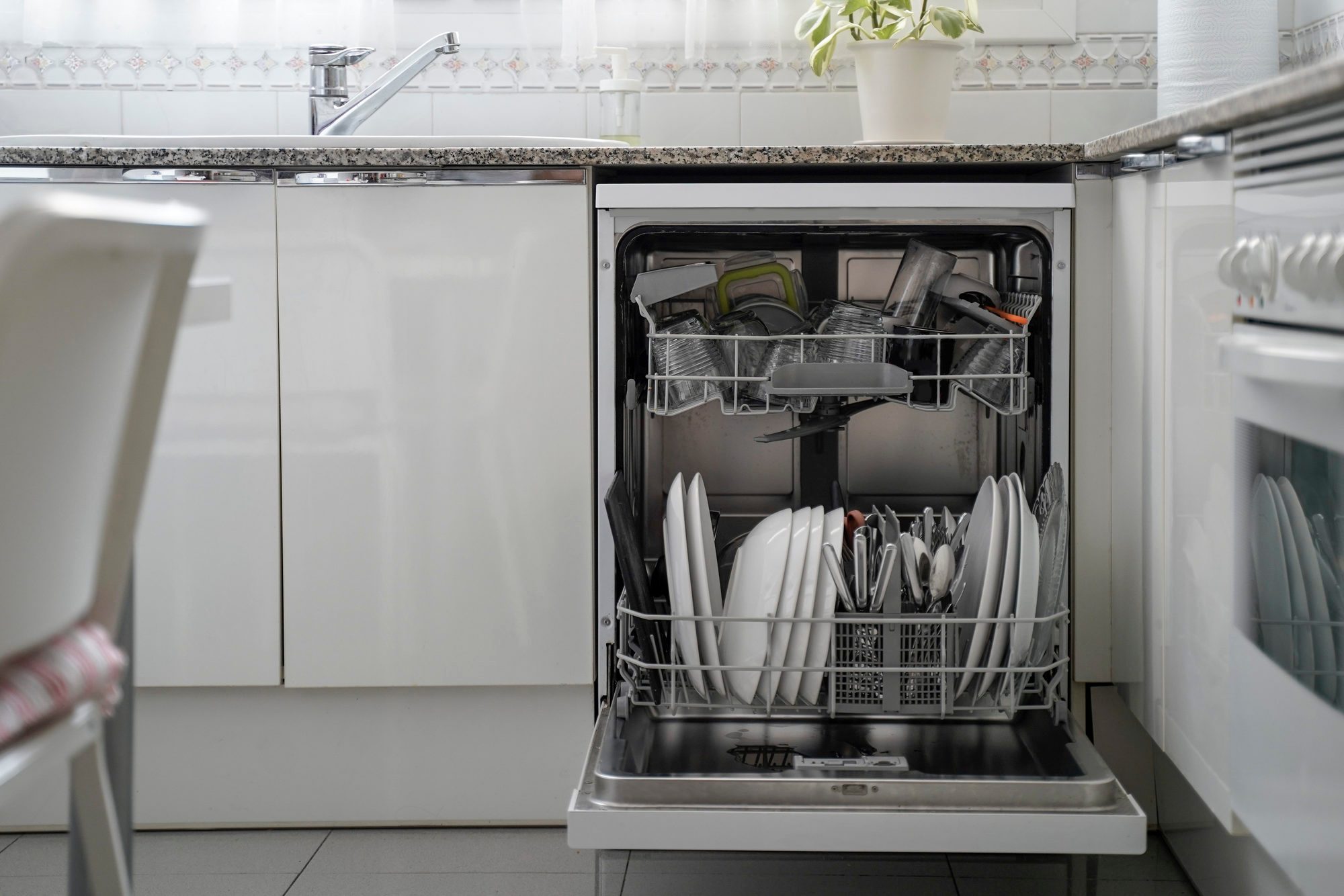
It’s not Energy Star–certified
If your dishwasher isn’t Energy Star–certified, then you might want to consider replacing it, whether or not you’re experiencing problems with your dishwasher, says Darryl Webber, PhD, chair of the Wade Department of Mechanical and Aerospace Engineering at Trine University in Angola, Indiana. Energy Star labeling on dishwashers began in June 1996 to identify machines that are at least 12 percent more efficient than non-certified models and more efficient than models that simply meet the federal minimum standard for “energy efficiency.” Washing dishes in a new Energy Star–certified dishwasher instead of hand-washing can save, on average, 3,780 gallons of water over a dishwasher’s lifetime and can cut your utility bills by around $111 per year.
If you’re looking to buy a new dishwasher, here are the best dishwasher brands to check out.
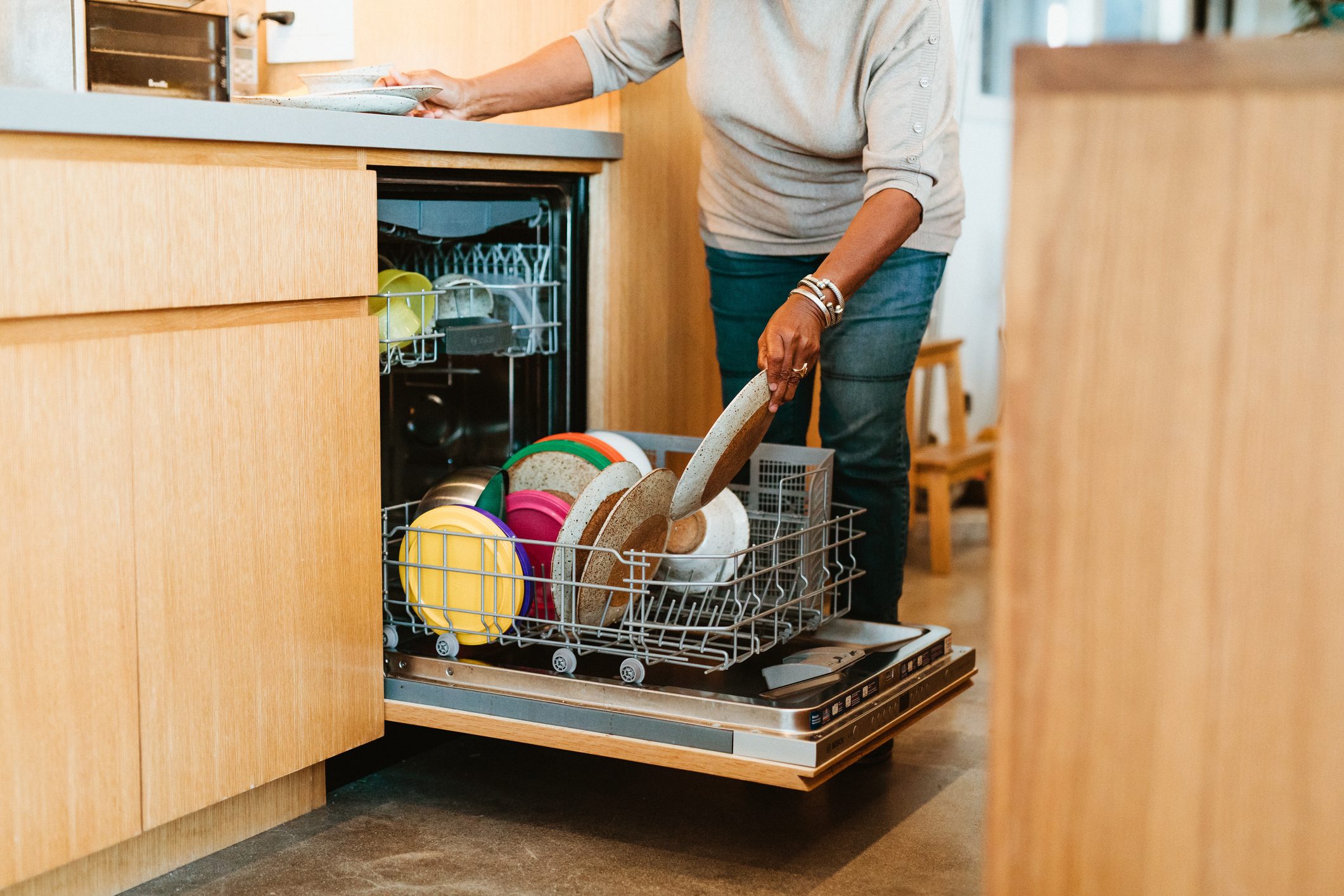
It’s more than 10 years old
The sad truth is that most dishwashers have a useful life of about 10 years. If it’s older than that, even if it is Energy Star–certified, it may not be nearly as energy efficient as others on the market today. If your dishwasher is approaching the decade mark and has any of the problems identified above, then that presents an even stronger case for starting to shop around.
Sources:
- Nick Ornitz, cofounder of Dwelling
- Rob Shaw, resident appliance expert at ProTip
- Albert Lee, founder of Home Living Lab
- Audrey Monell, president of Forrest Anderson Plumbing and Air Conditioning
- Darryl Webber, PhD, chair of the Wade Department of Mechanical and Aerospace Engineering at Trine University
